Projects
Running projects
LEEAN-CET – Local Energy and Environment Action Networks for Clean Energy Transition in Central and Southeast Europe
- Project title: Local Energy and Environment Action Networks for Clean Energy Transition in Central and Southeast Europe
- Acronym: LEEAN-CET
- Project ID: LIFE24-CET-LEEAN-CET (101214119)
- Programme: LIFE Programme – Clean Energy Transition sub-programme
- Call: LIFE-2024-CET-LOCAL
- Duration: (01.06.2025 – 31.05.2028) 36 months
- EU co-funding rate: 95%
- Coordinator: EnEffect – Center for Energy Efficiency (Bulgaria)
- Hungarian partner: IMRO-DDKK Environmental Nonprofit Ltd.
- IMRO-DDKK budget: €154,336.80 (EU contribution: €146,619.96)
- Total project budget: €1,592,165.35
Project Objectives
The overall aim of LEEAN-CET is to strengthen the capacities of local and regional authorities across Central and Southeast Europe to plan and implement clean energy transition measures, with a special focus on small and medium-sized municipalities, rural areas, and carbon-intensive regions. By introducing the European Energy Award (eea) methodology, the project supports the development of integrated energy management systems, local climate and energy strategies, and investment concepts to advance the clean energy transition.
Main Activities
- Adapting and implementing the eea methodology in six countries, including Hungary
- Developing local energy and climate action plans in at least 30 municipalities
- Training more than 300 municipal experts
- Preparing investment concepts worth at least €60 million
- Applying innovative stakeholder engagement and citizen participation strategies
Project Partnership
The project involves 10 partner organisations from Bulgaria, Hungary, Bosnia and Herzegovina, Croatia, Slovenia, Ukraine, Germany, France, and Austria.
Role of the Hungarian Partner
IMRO-DDKK Nonprofit Ltd. is responsible for supporting Hungarian municipalities in the development of their clean energy transition plans, organising national training activities, and introducing the eea methodology and tools at the local level.

GeoBuilding – Geothermal Energy for a Sustainable Future
The GeoBuilding project aims to promote the sustainable utilization of shallow geothermal energy and to support the energy refurbishment of public buildings in the Hungarian–Croatian border region. Within the framework of the initiative, a methodological guide will be developed, preparatory technical documentation for 20 public buildings will be prepared, and three demonstration investments will be implemented. In addition, the project will establish an AI-supported Virtual One-Stop-Shop (vOSS) system, providing municipalities and citizens with quick and accessible technical, legal, and financial information.
Administrative information:
- Programme: Interreg VI-A Hungary–Croatia Cooperation Programme 2021–2027
- Funding: Co-financed by the European Regional Development Fund
- Project title: Fostering ground source geothermal energy based energy refurbishments in the border area
- Project ID: HUHR/2403/GeoBuilding/2.1W/001
- Acronym: GeoBuilding
- Lead Partner: University of Pécs
- Project Partners:
- Regionalna energetska agencija Sjever (Croatia)
- Međimurska energetska agencija d.o.o. (Croatia)
- IMRO-DDKK Nonprofit Ltd. (Hungary)
- VIDRA – Regional Development Agency of Virovitica-Podravina County (Croatia)
- City of Koprivnica (Croatia)
- Međimurje County (Croatia)
- Energy Institute Hrvoje Požar (Croatia)
- Duration: 1 Sept 2025 – 31 August 2029 (48 months)
- Total budget: EUR 2,124,999.36
- ERDF contribution: EUR 1,699,999.48
- National co-financing: EUR 159,616.68
- Own contribution: EUR 265,383.20
In the long term, GeoBuilding contributes to strengthening energy independence, replacing fossil fuels, and creating a sustainable, low-carbon future in the border region.
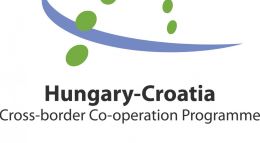
PROJECT TITLE: Cross-border efforts to prevent and eliminate energy poverty
ACRONYM: EnerTy
Project duration: 24 months (01.12.2023 – 01.12.2025)
The common challenge addressed by the project through cross-border cooperation is to improve the knowledge and awareness of decision-makers and to increase cooperation between decision-makers and end users in the field of prevention and elimination of household energy poverty.
Around 13% of households in the programme area face energy poverty, consequently linking energy poverty to the risk of social exclusion. The programme area has also recently experienced a rise in energy prices, which further contributes to the problem of citizen’s energy poverty. Therefore, it is necessary to establish a realistic baseline and solutions for energy poverty: to obtain data on the ground and identify the level of households already experiencing energy poverty and those who will soon experience it. Energy poverty is a multidimensional problem and important challenge, which needs to be addressed by the key actors and decision-makers who can take concrete action. On the other hand, it is necessary to provide them with a starting point for action and to indicate possible solutions.
The project will contribute to reducing energy poverty through activities aimed at improving energy efficiency and the use of renewable energy sources in households.
PROJECT PARTNERS:
- Local energy agency Pomurje (lead partner), Slovenia
- E-institute, Institute for Comprehensive Development Solutions, Slovenia
- IMRO-DDKK Nonprofit Kft., Hungary
- West Pannon Regional and Economic Development Public Nonprofit Ltd, Hungary
The project is co-financed by the European Regional Development Fund (ERDF) under the Cooperation Programme Interreg VI-A Slovenia-Hungary.
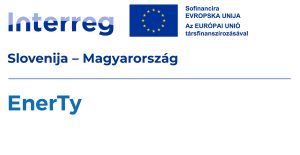
PROJECT TITLE: ESINERGY – Empowerment of the stakeholders in the implementation of the Directive on the promotion of the use of energy from renewable sources in term of energy storages and energy networks stability
Start Date: 01/01/2024
End Date: 30/06/2026
Total Budget in €: 2.508.094,99
Interreg Budget in €: 2.006.475,99
Programme: Danube Region Programme
Programme Priority: A greener, low-carbon Danube Region
Programme Specific Objective 2.1: Support greening the energy and transport sectors in the Danube Region by enhancing the integration of renewable energy sources Lead Partner Organisation: Local energy agency Pomurje (Slovenia)
Vezető Partner: Local energy agency Pomurje (Slovenia)
ESINERGY project aims to solve one of the key issues in modern energy technology, this is to manage the imbalance between the generated power and the load into the electrical network, which is not adequate for the forthcoming needs such as rising consumption, energy demand etc. Project will introduce the pilot approaches to reduce the peak loads directly in electrical networks, so that the producers could use the energy for own purposes (heat pumps, energy storages, charging stations, energy communities which can balance quite well differences of generation and demand) and support self-supply. Afterwards, the policy planning referring to peak loads will be improved through transnational strategy so that the measures could be replicated in other areas.

PROJECT TITLE: NRGCOM – Creating appropriate operational conditions for renewable energy communities in the Danube Region
Project website: https://interreg-danube.eu/projects/nrgcom
Start Date: 01/01/2024
End Date: 30/06/2026
Total Budget in €: 2.533.052,77
Total Interreg funding: 2.026.442,18 EUR
Programme: Danube Region Programme
Funding programme: Interreg Danube Region Programme
Programme Specific Objective 2.1: Support greening the energy and transport sectors in the Danube Region by enhancing the integration of renewable energy sources
Lead Partner Organisation: South Transdanubian Regional Innovation Agency – Hungary
The overall goal of NRGCOM is to enhance the spread of energy communities by creating an appropriate environment for their proper functioning in the Danube Region.
The NRGCOM project builds on three specific objectives (SO) which are the following:
- Initiating the establishment of the proper legal, operational and social environment for RECs strategy (SO1)
- Raising awareness and encouraging society to create or join energy communities (SO2)
- Enhancing production and use of renewables through pilot testing in potential and existing RECs (SO3)

PROJECT TITLE: Preservation of the cross-border region’s biodiversity and natural environment through the implementation of conservation and awareness-raising measures aimed at protecting wild pollinators and their natural habitats.
Project acronym: PollenAct
Project duration: 01.07.2024. – 31.12.2025. (30 months)
General objective of the project: Preserving the biodiversity of the Pannonian Plain amidst accelerating climate change and increasing human pressure on natural resources. The project highlights the importance of measures to protect endangered wild pollinators. By developing a strategy and implementing pilot actions based on natural resources (such as multifunctional gardens), we promote the ecological status and connectivity of the cross-border area. Raising awareness among target groups paves the way towards a more sustainable lifestyle.
Project partners:
- Research and Educational centre Mansion Rakičan (Lead partner)
- Biotechnological School Rakičan
- Zala Regional Development Agency Non-profit Ltd.
- IMRO-DDKK Nonprofit Ltd.
The project is co-financed by the European Regional Development Fund (ERDF) under the Cooperation Programme Interreg VI-A Slovenia-Hungary.
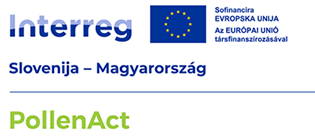
Completed projects
 ASSET: Our primary objective is to support teachers in the improvement of their skills in climate education by empowering them with an innovative teaching methodological guidebook and related learning materials based on 7 thematic chapters, while also organizing training and workshops for them. Thus, we can enable knowledge transfer among the target group that will result in the improving quality of climate education in schools and the raising of environmental awareness of 12-14-year-old students.
ASSET: Our primary objective is to support teachers in the improvement of their skills in climate education by empowering them with an innovative teaching methodological guidebook and related learning materials based on 7 thematic chapters, while also organizing training and workshops for them. Thus, we can enable knowledge transfer among the target group that will result in the improving quality of climate education in schools and the raising of environmental awareness of 12-14-year-old students.
Project website: http://assetproject.eu/
 Back to nature: The project aimed to develop experimental, nature-friendly, innovative pedagogies for schools. Handbooks are available to download in our website (Letölthető anyagok/ Back to nature/ Handbook).
Back to nature: The project aimed to develop experimental, nature-friendly, innovative pedagogies for schools. Handbooks are available to download in our website (Letölthető anyagok/ Back to nature/ Handbook).
 StartUp Academy: The project contributed to the acquisition of the skills needed to turn a business idea into a business between the ages of 18 and 35.
StartUp Academy: The project contributed to the acquisition of the skills needed to turn a business idea into a business between the ages of 18 and 35.
 EE SUN: The EE SUN project has contributed to the sustainable development of border areas by contributing to the reduction of residential carbon dioxide emissions. The project provided support for condominiums in the border region. 24 buildings (12 Hungarian and 12 Croatian) were involved in the analysis of energy efficiency, conclusions and common methodology.
EE SUN: The EE SUN project has contributed to the sustainable development of border areas by contributing to the reduction of residential carbon dioxide emissions. The project provided support for condominiums in the border region. 24 buildings (12 Hungarian and 12 Croatian) were involved in the analysis of energy efficiency, conclusions and common methodology.
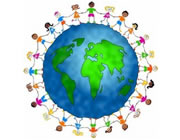 Hulladékvadász: The “Hulladékvadász” (Waste Hunter) project promoted sustainable living among children, contributing to the development of an environmentally conscious approach. As part of the project, the involved schoolchildren and kindergartens participated in field trips and lectures. In addition, they received 1-1 color booklet, which helped shape their view. (The project was implemented within the framework of the KEOP-2009-6.1.0 / A application of the Environment and Energy Operational Program “Campaigns Promoting Sustainable Lifestyle and Related Behaviors (Attitudes, Information, Training)”)
Hulladékvadász: The “Hulladékvadász” (Waste Hunter) project promoted sustainable living among children, contributing to the development of an environmentally conscious approach. As part of the project, the involved schoolchildren and kindergartens participated in field trips and lectures. In addition, they received 1-1 color booklet, which helped shape their view. (The project was implemented within the framework of the KEOP-2009-6.1.0 / A application of the Environment and Energy Operational Program “Campaigns Promoting Sustainable Lifestyle and Related Behaviors (Attitudes, Information, Training)”)
 Klímabarát: The “KlímaBarát” (Climate Friendly) project has contributed to the promotion of sustainable lifestyles through a complex regional campaign for the general public, primary schools and policy makers. Within the framework of the project was launched lectures, television programs and newspaper advertisements in connection with sustainability. Project realization area: Nagykanizsa, Zalaegerszeg, Keszthely, Letenye, Kaposvár, Dombóvár. (KEOP-6.1.0 / B / 09-2009-0021)
Klímabarát: The “KlímaBarát” (Climate Friendly) project has contributed to the promotion of sustainable lifestyles through a complex regional campaign for the general public, primary schools and policy makers. Within the framework of the project was launched lectures, television programs and newspaper advertisements in connection with sustainability. Project realization area: Nagykanizsa, Zalaegerszeg, Keszthely, Letenye, Kaposvár, Dombóvár. (KEOP-6.1.0 / B / 09-2009-0021)
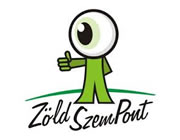 ZöldSzempont Tanácsadó Iroda: The activities of the ZöldSzemPont Consulting Office include personal, free general counseling, lectures, quizzes, competitions (drawing, essay, photo), organizing and conducting workshops, organizing environmental awareness events and participating in national and international projects. (KEOP-6.1.0/B/11-2011-0101)
ZöldSzempont Tanácsadó Iroda: The activities of the ZöldSzemPont Consulting Office include personal, free general counseling, lectures, quizzes, competitions (drawing, essay, photo), organizing and conducting workshops, organizing environmental awareness events and participating in national and international projects. (KEOP-6.1.0/B/11-2011-0101)
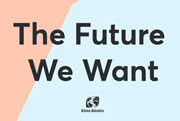 EYD2015 – „The future we want – Local Authorities for sustainable development”: Climate Alliance’s project, “EYD2015: The future we want – Local Authorities for Sustainable Development”, focused on the European Year for Development 2015 (EYD2015) and served to heighten citizens’ awareness of development issues as well as promote active engagement with major development debates.
EYD2015 – „The future we want – Local Authorities for sustainable development”: Climate Alliance’s project, “EYD2015: The future we want – Local Authorities for Sustainable Development”, focused on the European Year for Development 2015 (EYD2015) and served to heighten citizens’ awareness of development issues as well as promote active engagement with major development debates.
Via the project, the 16 project partners from 10 European countries, gave citizens and politicians a deeper understanding of global interdependencies by calling into question European overconsumption of natural resources and showing the way toward more responsible and globally fair consumption habits.
Three Handbook are available to download in our website (Letölthető anyagok / EYD2015- „THE FUTURE WE WANT”)
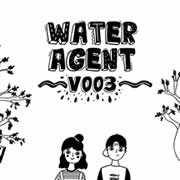 Water Agent V003: The aims of the project was at raising awareness about water management among pupils in three Central European countries: Czech Republic, Hungary and Slovakia. It has been developed by Global Water Partnership Central and Eastern Europe (GWP CEE), IREAS and IMRO , and funded by the Visegrad fund. Within the framework of the project the partners produced a handbook for elementary school teachers in the respective countries. This handbook helps the teachers bring the environmental topics such as water governance into the common educational system. It explores water management divided into tree basic sections: i) water in the landscape, ii) water consumption in households and iii) water in the city.
Water Agent V003: The aims of the project was at raising awareness about water management among pupils in three Central European countries: Czech Republic, Hungary and Slovakia. It has been developed by Global Water Partnership Central and Eastern Europe (GWP CEE), IREAS and IMRO , and funded by the Visegrad fund. Within the framework of the project the partners produced a handbook for elementary school teachers in the respective countries. This handbook helps the teachers bring the environmental topics such as water governance into the common educational system. It explores water management divided into tree basic sections: i) water in the landscape, ii) water consumption in households and iii) water in the city.
 International Green Entrepreneurship and Innovative Employment Center (IGEC): The IGEC project supporting environmentally conscious entrepreneurs. The aim of the Erasmus+ funded project is that project partners can establish such an international consultancy office, by coordinating their best-practices and expertise, providing advisory and training background for entrepreneurs and startups seeking to handle the challanges of sustainable development primarily in the field of energy efficiency, environmental protection, and the usage of renewable energy resources.
International Green Entrepreneurship and Innovative Employment Center (IGEC): The IGEC project supporting environmentally conscious entrepreneurs. The aim of the Erasmus+ funded project is that project partners can establish such an international consultancy office, by coordinating their best-practices and expertise, providing advisory and training background for entrepreneurs and startups seeking to handle the challanges of sustainable development primarily in the field of energy efficiency, environmental protection, and the usage of renewable energy resources.
![]() Green Line: The project started on 01 of July 2018 and trough 36 months focuses on transfer knowledge and experience, and increase cross-border relationships and cooperation between relevant organizations (partners, municipalities, governmental organizations) on the field of environmental protection, energy efficiency and renewable energy.
Green Line: The project started on 01 of July 2018 and trough 36 months focuses on transfer knowledge and experience, and increase cross-border relationships and cooperation between relevant organizations (partners, municipalities, governmental organizations) on the field of environmental protection, energy efficiency and renewable energy.
 CI-You: Out of the Box International, together with partners from Cyprus (CSI), Greece (IED & AKMI), Hungary (IMRO), Serbia (EDUFONS), Italy (JUMP) and Slovenia (MIITR) have launched the “CI-You: Circular economy youth leaders” project in April 2021.
CI-You: Out of the Box International, together with partners from Cyprus (CSI), Greece (IED & AKMI), Hungary (IMRO), Serbia (EDUFONS), Italy (JUMP) and Slovenia (MIITR) have launched the “CI-You: Circular economy youth leaders” project in April 2021.
The CI-You Project aims to foster a sense of initiative and circular entrepreneurship among young people and to stimulate them to develop skills needed in circular economy through trainings and skills development.
The project will promote quality circular economy jobs in the consortium’s partner countries, by training the youth with the skills needed in a circular economy. The potential for youth to consider self-employment in the circular economy sector has not yet been fully realized in the European Union and many young people have circular economy related professional and vocational skills, but not circular entrepreneurial skills. The main aim of the CI-You project is to help further improve the level of green business culture in Europe by providing the youth with knowledge and concepts in the field of the circular economy.
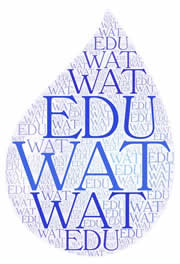 Wat.Edu: Within the framework of the project four country (Hungary, Czech Republic, Greece and Slovenia) are working together. Wat.Edu is common project of 8 institutions from 4 countries. In each country one elementary school and one research/practical institution is involved. The common goal is to educate children for the future challenges connected with water.
Wat.Edu: Within the framework of the project four country (Hungary, Czech Republic, Greece and Slovenia) are working together. Wat.Edu is common project of 8 institutions from 4 countries. In each country one elementary school and one research/practical institution is involved. The common goal is to educate children for the future challenges connected with water.
